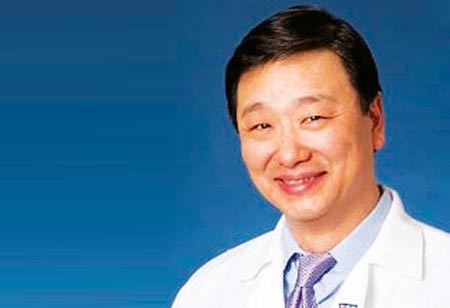Could you please tell us about your background pertaining to laparoscopic surgery and Denver Health?
After finishing my training under the mentorship of Dr. Louis Kavoussi, a pioneer in laparoscopic surgery from Johns Hopkins University, I joined the Department of Surgery at Denver Health under the leadership of Dr. Ernest E. Moore. As chief of urology at Denver Health, I started to develop the minimally invasive laparoscopic surgery program, and we were one of the pioneers in laparoscopic surgery in the U.S.. Today, Denver Health’s Department of Urology provides high-quality, and patient[1]centric care focused on all laparoscopic and minimally invasive treatment options. We assist patients in making the best decision for their care. Our diverse team of doctors, advanced practice providers, and nurses provide medical and surgical treatment for both standard and complex urologic disorders.
How has technology influenced your career within the medical landscape?
In urology, we have come a long way from the initial laparoscopic to today’s robotic surgery. Surgical treatment is no longer limited to just the traditional scalpel incision. The technological world evolved, and we perform complex surgeries using minimally invasive techniques that are efficacious and cost-effective.
“Today, the world of technology has evolved in urology. Surgeries are done through small incisions using laparoscopic or robotic surgery and patients recover much faster than before”
Although we do not have robotic surgery at Denver Health, we perform the same surgeries using the laparoscopic technique.
In 2000, when robotic surgery started, I proctored the first robotic surgery in Denver to certified doctors in robotic surgery because laparoscopic and robotic surgery utilizes the same concepts and understanding of minimally invasive surgery.
We are proud to be one of the pioneer centers in the U.S. for minimally invasive surgery and one of the centers of excellence for cryoablation therapy for kidney and prostate cancers. In our institution, we train medical students in nanotechnology research and new ways of treating and diagnosing cancer. The other end of the spectrum of our practice is the treatment of trauma patients with the same minimally invasive techniques.
What are your expectations for the future?
There are quite a few predictions we can have for the near future. The first and foremost of these are the innovations in nanotechnology, laser technology, robotics, MRI /ultrasound fusion targeted treatment for prostate cancer. Nowadays, laser technology can treat various types of urinary tract stones and benign diseases, and we will see more applications of this technology to cure cancer.
Furthermore, development in Genetics and Artificial Intelligence will play a critical role in collecting and analyzing patient information and creating a more personalized patient treatment.
What would be your advice to young doctors who would like to work in the urology field?
Urology is indeed a wonderful specialty that allows you to develop a long-term relationship with your patients. Our practice deals with surgical and clinical problems, and we use technology to assist our procedures and treatments.
The quality of life is excellent. Although it is an extremely competitive field with approximately 320 residency vacancies. There is already a shortage of urologists in the U.S., and the concomitant growth of elderly people is increasing the demand for urologists in the U.S.
Finally, despite the high rates of burnout in the medical community, urologists are still happy with the specialty, and according to the published surveys, the majority of urologists would choose urology again as a specialty if they had to choose again.



